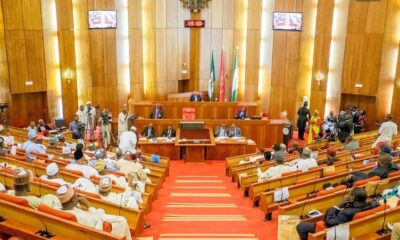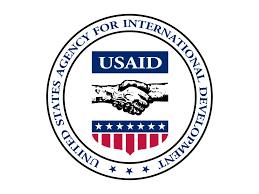Education
Senate urges joint effort to address out-of-school children crisis in Nigeria

In response to the pressing issue of out-of-school children in Nigeria, the Senate has called upon the Federal Ministry of Education, its associated agencies, and relevant stakeholders to collaborate on devising new strategies to address this challenge effectively. The Senate’s resolution came following the adoption of a motion titled “Compelling need to tackle the challenge of out-of-school children in Nigeria” during Wednesday’s plenary session.
The motion, sponsored by Senator Oluranti Adebule of the All Progressives Congress (APC) representing Lagos State, highlighted the alarming statistics revealed in the 2022 report by the United Nations Educational, Scientific and Cultural Organisation (UNESCO). According to the report, approximately 20 million Nigerian children are currently out of school.
Senator Adebule underscored the urgency of the situation, emphasizing the need for concerted efforts to tackle this growing concern. The Senate’s call for collaborative action underscores the gravity of the issue and the necessity for swift and effective measures to ensure access to education for all children in Nigeria.
This, she said, represented 10 percent of the estimated Nigerian population of 200 million people and also represents the highest number of out-of-school children from any country globally.
She, however, noted that the ministry of education had since disputed the figure.
“It is a general belief that whatever the real figures on out-of-school children are, has become a challenge on the Nigerian state that must be dealt with as a matter of urgency.”
She said the social impacts of having about 20 million out-of-school children on the Nigerian state was an impediment to achieving some of the United Nations Sustainable Development Goals.
According to her, it is resulting in a lack of inclusiveness and equitable quality of education and promotion of lifelong learning opportunities for all.
“The issue will provide for easy recruitment into criminal gangs, banditry and terrorism which are the biggest security issues the Nigerian state has been dealing with for many years.”
She said, in the past, successive administrations made several efforts to deal with out-of-school children menace, saying that the last effort was deployment of home-grown school feeding programmes by the Muhammadu Buhari administration.
She, however, said the programme had little impact on the surging number of out-of-school children.
According to her, there is a need to evolve new thinking and more aggressive strategies to deal with the menace.
She expressed belief that when all the institutions concerned are committed to their responsibilities, the menace of out-of-school children will be subdued, saying that the situation is a concern to the Federal Government.
Similarly, Sen. Mohammed Monguno (APC- Borno) said the motion was important, adding that all efforts should be made to ensure that the children are enrolled in schools to avoid the challenge of recruiting them into banditry and terrorism.
Sen. Ahmed Lawan (APC- Yobe) said the issue of out-of-school children was a social and security issue as well as a major challenge to the development of Nigeria.
According to him, the number of out-of-school children could be within the region of 40 million.
He said that efforts must be deliberately made to get the children back to school and prepare them for leadership, noting that global development may be eluding Nigeria with issues of out-of-school children.
Also, Sen. Adams Oshiomhole (APC- Edo) said every Nigerian child needs to be enrolled in school, given the importance of education to eradication of poverty.
He urged the appropriate agencies of government to publish the actual statistics of out-of school-children and steps taken by state governments to address the issues.
President of the Senate, Godswill Akpabio, in his remarks commended the sponsor for the motion, saying that opportunities would have been given to many Nigerian children, if attention was paid by various governments both state and local governments in the past.
The Senate in its further resolution mandated its Committee on Education (Basic and Secondary) to engage the Federal Ministry of Education and pay attention to the issue of out-of-school children with the ultimate objective of drastically reducing the number.
It called for measures to rekindle the national consciousness through sensitisation and advocacy on the importance of education to the growth and development of Nigeria and the benefits of having a majority educated population.
The Senate has issued a call for urgent action towards the diligent implementation of the Universal Basic Education (UBE) Act, advocating for a two-year time limit for its execution. This directive was part of a series of resolutions made by the Senate to address the critical issue of out-of-school children in Nigeria.
Furthermore, the Senate urged governments at all levels to initiate targeted intervention programs aimed at tackling the various barriers hindering free access to quality basic education, with a particular focus on addressing multidimensional poverty and insecurity.
In addition to these measures, the Senate called upon the Judiciary across the 36 states of the federation to take proactive steps in establishing mobile courts dedicated to enforcing the provisions of the UBE Act.
These resolutions reflect the Senate’s commitment to addressing the challenges facing the education sector in Nigeria and ensuring that all children have access to quality basic education, irrespective of socio-economic factors or security concerns.
Education
2024 WASSCE begins April 30 with 1,814,344 candidates
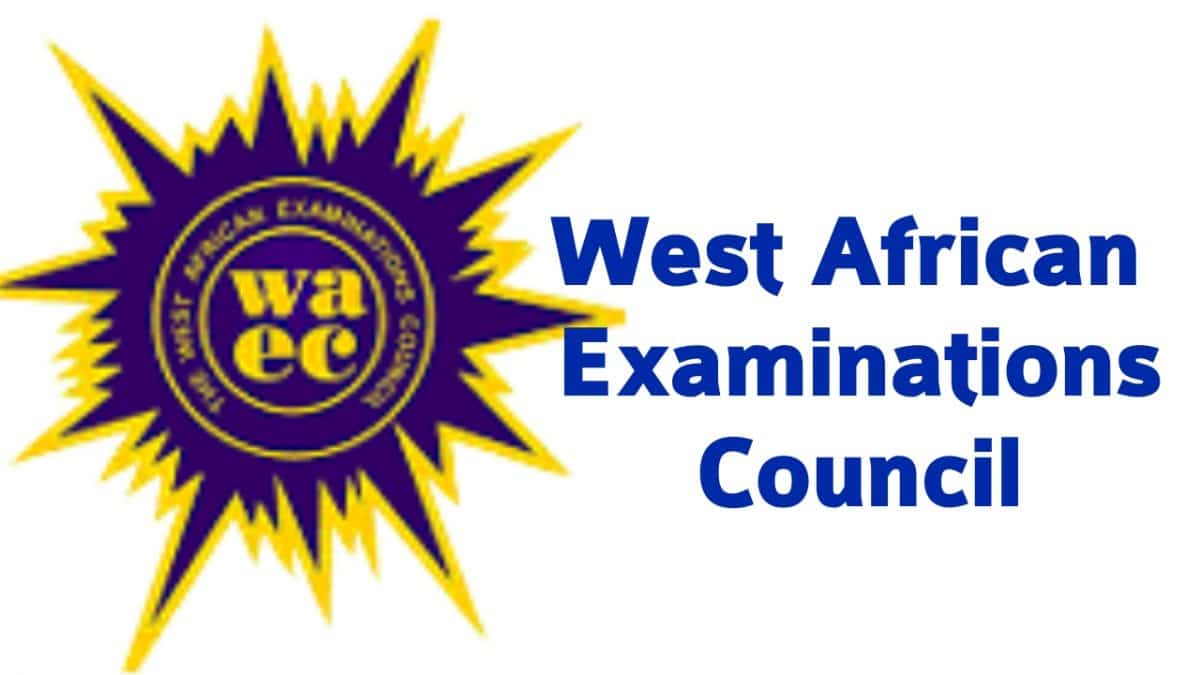

The West African Examinations Council (WAEC) says that 1,814,344 candidates from 22,239 schools, registered for the 2024 West African Senior School Certificate Examination (WASSCE).
The council’s Head of National Office (HNO), Dr Josiah Dangut stated this at a pre-examination interactive session with newsmen on Monday in Lagos.
He disclosed that candidates would be examined in 76 subjects, made up of 197 papers, with about 30,000 practicing Senior Secondary school teachers, nominated by various Ministries of Education, to supervise the examination.
“I want to intimate you all about the level of readiness of council, for its upcoming 2024 WASSCE (school candidates).
“All is now set for the commencement of the examination, fixed for Tuesday, April 30 to Monday, June 24 in Nigeria, spanning seven weeks and six days.
“This examination will be conducted in four WAEC member countries, namely, Nigeria, Gambia, Sierra-Leone and Liberia.
“Out of the total number of candidates that registered for the examination, 902,328 are males, while 912,016 others are females,” he stated.
According to him, the statistics shows that there is a further increase in the number of females and males that registered for the examination respectively, when compared to what was obtained in 2023.
Dangut added that on the whole, the candidature for this year, increased by 192,948.
The WAEC boss noted that in line with the directive of the Federal Government, the National Identification Number (NIN) was made a component of the registration process.
He added that the registration portal allowed candidates to submit their NIN.
On the issue of insecurity during the conduct of the examination nationwide, Dangut explained that council had stepped up efforts in ensuring extra security arrangements, especially in security prone areas.
“We cannot feign ignorance of the level of insecurity in the country.
“Conducting examinations has been challenging. Instances of insecurity exist in many places across the country and conducting examinations in insecurity-prone areas would require extra security arrangements.
“Consequently, we are liaising with the Inspector General of Police (IGP) and state governments, to provide adequate security to ensure that the examination is conducted nationally, in a safe and secured environment,” he said.
On the issue of examination malpractice, the HNO warned that council would not hesitate to deal decisively with candidates and examination functionaries, who engaged in such act.
According to him, penalties for involvement in examination malpractice are meted out on erring candidates, supervisors and schools, upon establishment of culpability, by the Nigeria Examinations Committee (NEC).
“The NEC is the highest decision-making organ of the council, that sits on examination matters in Nigeria.
“The council, on its part, has rolled out several awareness campaigns nationwide and organised seminars for school proprietors, principals, students and other key stakeholders, to sensitize them on the immediate and long-drawn effects of examination malpractice.
“Similarly, flyers, banners, posters and other forms of reminders to further keep the message fresh in the minds of all stakeholders and candidates sitting the examination have been rolled out.
“It is therefore, on this note that, I call on parents and guardians to encourage their wards to study diligently and desist from engaging in any form of examination malpractices.
“The mass media must come in handy, as efforts to rid our nation of this menace is a collective responsibility.
“The various ministries of education should call their principals, teachers and other officials serving as inspectors and/or supervisors, to order,” he said.
He also urged school principals and teachers to sensitize their students on the dangers of engaging in what he described as ‘terrible crime’ against humanity.
“Every candidate and examination functionary must play by the rules, which are well stipulated in the WAEC examination Syllabuses and Guidelines, for the conduct of examination, issued to schools.
“Erring schools would be derecognised, erring officials adequately punished, while erring candidates would lose their results, if found culpable,” he warned.
He also warned all operators of rogue websites to desist from their acts, noting that WAEC would not condone their heinous acts, during the conduct of the forthcoming examination.
“Parents are hereby cautioned to desist from patronising these evil-doers, who are hell-bent on frustrating the efforts of WAEC,” he said.
According to him, to further provide resource materials to aid candidates’ learning, WAEC has now introduced a compilation of past questions, with the marking schemes.
He noted that with the development, council was optimistic that candidates would use the booklets to enhance their study and preparedness for the examination.
The HNO added that already, WAEC had made available, its e-learning portal to assist candidates by providing learning materials, that would equip them with the requirements and expectations needed to write and pass their examination.
Dangut noted that this was with a view to proffering general guidance to teachers and other stakeholders.
“Students’ performances on previous examinations are analyzed, with regard to their general strengths and weaknesses, providing expert advice on the requirements for answering WASSCE questions.
“Candidates should visit https://WAEConline.org.ng for this service,” he said.
On the release of results, the HNO said in tune with council’s recent tradition, the results of candidates sitting the examination would be released, 45 days after the conduct of the last paper.
Dangut said that certificates would be printed and issued to schools in less than 90 days, after the release of results.
“Meanwhile, the results will be released alongside the digital copies of candidates’ certificates, which can be accessed on the Digital Certificate platform.
“I, therefore, ask that all hands be on deck, to ensure that WASSCE for School Candidates, 2024, is hitch-free.
“However, non-adherence to the registration deadline is still a lingering challenge in preparation for examinations.
“It may surprise you to hear that even though entries were floated by Dec. 5, 2023 and the registration exercise was scheduled to finally end on April 3, the council continued to extend its deadline on registration until late April, due to requests from different stakeholders.
“Such actions impact negatively on the preparation of pre-examination, examination and post-examination materials.
“The council, in collaboration with the Federal Ministry of Education, the State Ministries of Education, the Nigeria Police, other security agencies and other stakeholders, would do all it can, to deliver on its mandate to conduct a credible examinations to the Nigerian child and the general public,” he said.
Education
UK varsity offers Nigerians N44m scholarships
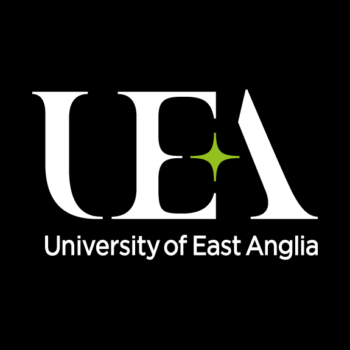

The University of East Anglia, situated in Norwich, United Kingdom, has announced a £33,150 (N44.3 million) worth of scholarships and travel costs of £4000 (N5.3 million) to Nigerians and other applicants seeking masters in Plant and Health in its institution.
The funding, according to information gathered on the school’s website on Wednesday, is the David Sainsbury Scholarships in Global Plant Health, which is fully funded for students planning to travel to the UK for study.
The scholarship also covers postgraduate researcher stipend level, which they said would be determined later for the session of admission, adding that the previous academic year was £18,622.
The university also noted that the application is for the 2024/2025 Academic Session, which will begin in September.
While wooing prospective and eligible applicants, the school wrote, “The Sainsbury Laboratory (TSL) offers the prestigious David Sainsbury Scholarships in Global Plant Health to a limited number of applicants on the MSc in Global Plant Health.
“Each full scholarship will cover up to the full cost of the tuition fee (£33,150 for 2024-25), maintenance grant (exact value at the UKRI postgraduate researcher stipend level to be determined for 2024-25; in 2023-24, it was £18,622), and an additional £4,000 for travel costs (subject to valid economy class travel receipts).
“You are eligible for a full scholarship under these terms if you meet all these criteria: You are in receipt of an offer of a place on the UEA MSc in Global Plant Health; You are a national of or domiciled in a least-developed, low-income, or lower-middle-income country or territory as defined by the Overseas Development Agency Development Assistance Committee (DAC) list, version 2024-25 for entry in 2024-25 academic year.
“There are a limited number of scholarships available, and these will be awarded throughout the year, so you are advised to apply early.”
The institution further added that once the criteria for admission are met, the applicants are eligible for receipts of an offer of a place on the UEA MSc in Global Plant Health.
It further advised that more scholarships will be updated on their website in May while encouraging applicants to always check for updates.
Education
Alleged negligence: Tragedy as female student dies at Ilaro Poly Clinic
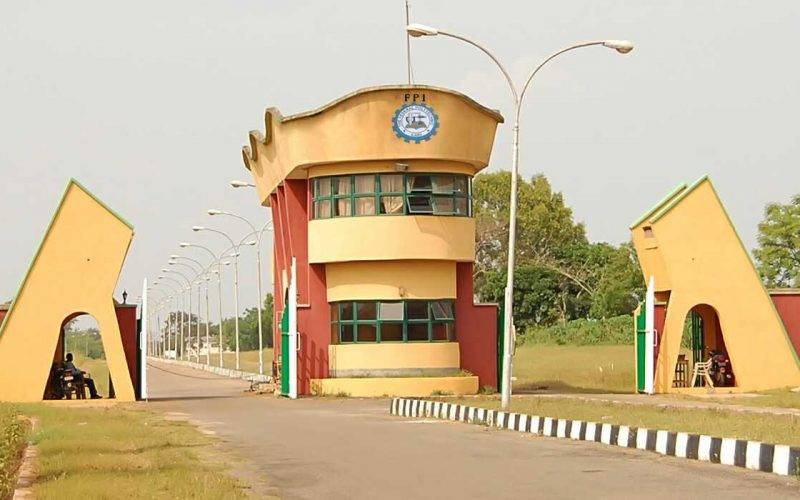

…School management accused of deceptive tactics in student’s death
…Shut down poly clinic to prevent further loss of lives — Student body demands
By Sodiq Adelakun
A student of Leisure and Tourism at the Federal Polytechnic Ilaro, Ajayi Abimbola Adejoke, has lost her life due to alleged negligence at the school clinic.
This devastating incident is part of a larger pattern of indifference and neglect towards students seeking medical attention, according to reports.
A student who wished to remain anonymous revealed that Adejoke was denied medical attention at the clinic due to her lack of a clinic pass.
This shocking revelation has sparked outrage and calls for action from the student body, demanding accountability and improved healthcare services at the institution.
The student union president, Thanni Damilare Abdullahi, has issued a statement demanding justice and accountability for the clinic staff’s alleged disregard for human life.
The student body is united in their demand for a thorough investigation, reform, and reshuffling of the clinic staff.
They refuse to accept complacency or indifference in the face of such grave injustices against students.
According to the statement, “The distressing reality is that this isn’t the first time such negligence has resulted in the loss of student lives. Despite being entrusted with the responsibility of providing medical care, the clinic staff’s alleged disregard for human life has led to preventable tragedies.
“As students, it is our collective demand for justice that drives us to speak out against these injustices. The loss of a fellow student is a loss to the entire community, and it is imperative that those responsible for such negligence are held accountable.
“Calls for a total reform and reshuffling of the clinic staff are not unwarranted. It is evident that a systemic change is needed to ensure such tragic incidents do not occur again in the future. Students should feel safe and assured that their health and well-being are prioritized when seeking medical assistance on campus.”
In light of recent events, there is a growing sentiment among students to take action, even if it means temporarily shutting down the clinic to prevent further loss of lives. Every life lost due to negligence is a stark reminder of the urgency of our demands.
The student union president, Thanni Damilare Abdullahi, has urged all students to join the movement and demand justice.
The statement has been endorsed by other student leaders, including Oloyede Hassan A., Deputy Coordinator of NAPS Southwest, Bammeke Solomon, Sport Director of NANS Southwest, and Folarin Israel Goodness, NAOSS National Treasurer.
The students are determined to ensure that no more lives are lost due to negligence and are calling on the National Association of Nigerian Students (NANS), National and the Senior Special Assistant to the President of Nigeria on Student Engagement to intervene and support their demands.
Efforts to contact the institution’s Public Relations Officer, Mr. Sola Abiala, were unsuccessful, as he failed to respond to WhatsApp messages.
-
capital market2 years ago
Rt.briscoe, FBNH, Others halts negative performance of stock market
-
Finance3 months ago
Court orders Sen. Victor Umeh to repay N136m bank debt to AMCON
-



 Abuja Update2 months ago
Abuja Update2 months agoUNDP, FG partnership needed to achieve inclusion, equity- Minister
-
Abuja Update1 month ago
Banks drive stock market performance with N147bn gain
-



 Business1 week ago
Business1 week agoTingo Group unveils Tingo Electric, Tingo Cola drink at Lagos launch
-



 Health2 weeks ago
Health2 weeks agoCapacity training will reduce migration of health workers- NPHCDA
-



 Infotech4 weeks ago
Infotech4 weeks agoWorld Backup Day: NITDA urges Nigerians to ensure backup of data
-
News4 months ago
Oil thieves sponsoring malicious media campaign against Navy – Spokesman



